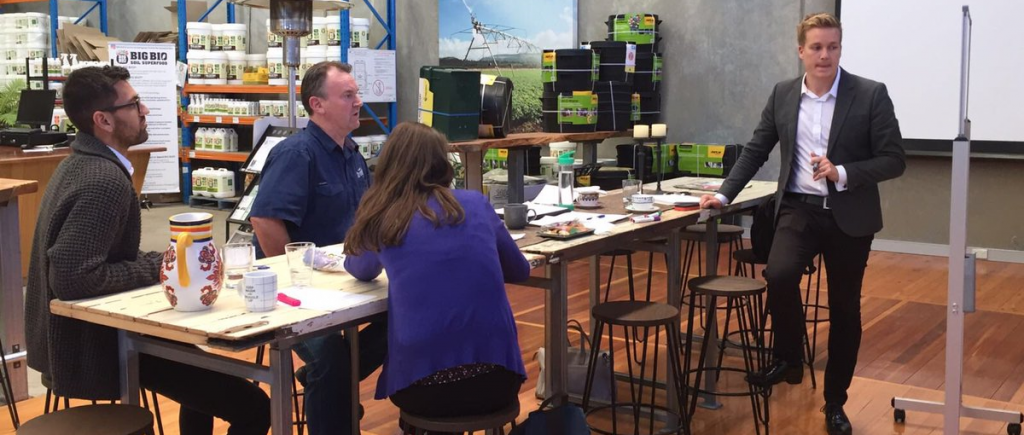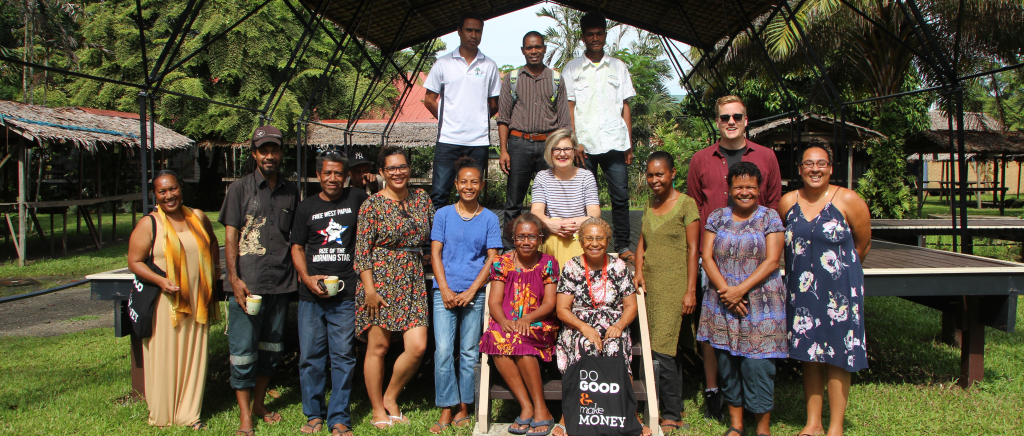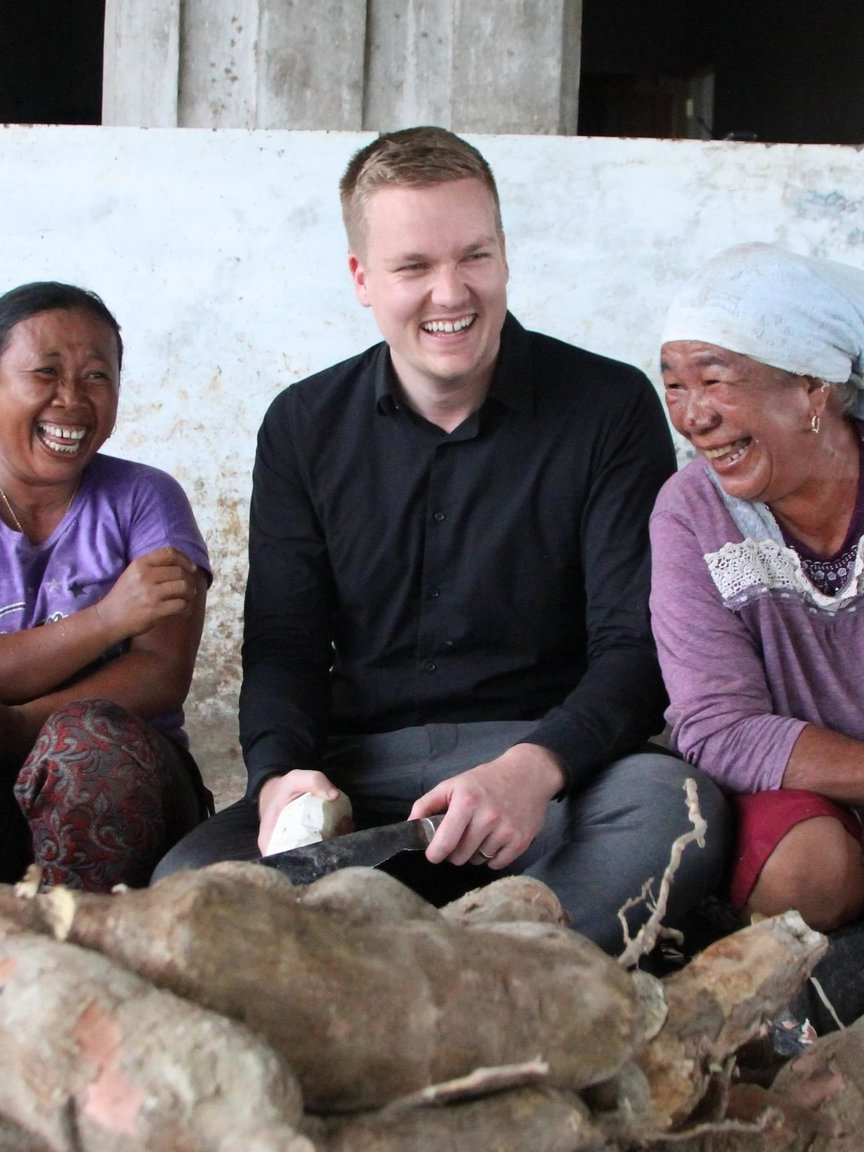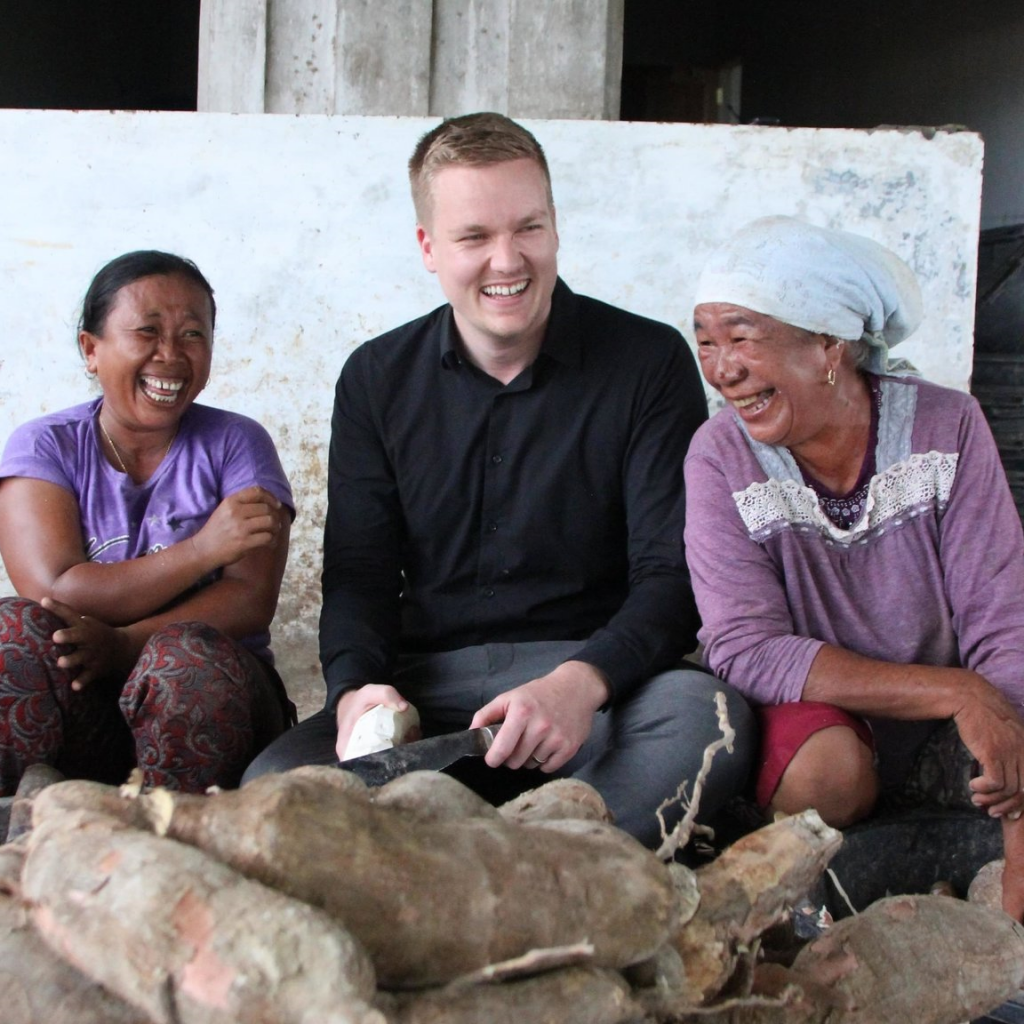Isaac is hands-down one of the most intriguing, inspiring and dedicated, yet humble people I have met in the field of social enterprise to date. And he would argue that none of that is true – and you see immediately why I’m such a fan.
We first met in 2016 when I interviewed him for phase 1 of Social Venturers while he was running business model programming for The Difference Incubator – TDi – in Melbourne, Australia. We caught up again a year later during one of my visits and immediately fell back into the comfort of diving deep into a topic that we both felt passionately about: seeing social entrepreneurs thrive.

Isaac now splits his time between working with TDi and Business for Development, the latter taking him through the South Pacific and to exotic places like Fiji, Indonesia and Papua New Guinea. That means two very distinct roles in even more distinct locations.
One Isaac, two hats
“With Business for Development, I work mostly in developing countries trying to lift people out of poverty and reviving the local economy, bringing new practices to established communities and their ways of doing things. For example, we were rolling out a program in Papua New Guinea (PNG) to train 1,000 farmers to improve the way they grow coffee (prune trees, higher yields, work in a collective, connect with new buyers) which leads to higher grade coffee, better prices, and up to 40% of an income increase. Our biggest challenge in the beginning was whether it was going to work culturally. In an egalitarian culture like PNG, it is more common to do what everyone else is doing. Just because an idea works on a spreadsheet doesn’t mean farmers will go for it.”

“At TDi, I run accelerator programs for social entrepreneurs in Australia, Fiji and Papua New Guinea. Aside from facilitation, I measure good days in terms of how many good conversations I get to have. In the longer term, I feel like I’ve made an impact when I see a timid and self-critical early-stage entrepreneur turn into someone driven by a clear mission with happy customers and a solid roadmap going forward.”
The hardest part of the job is my favorite part of the job: having really ugly conversations with people. For example: “You’re building the wrong thing for the wrong reasons.” or “I think you’re pricing yourself too low because you’re nervous”
To me, working in two such different worlds sounds a lot like having two brains. What does that look like in terms of catering to different contexts?
“You don’t have to become an expert in everything. I believe in pursuing what you are passionate about, but to make sure you cover your bases. You need to learn a bit about everything and be a good listener. In terms of soft skills, it’s important to be empathetic and persuasive, and that’s all about relationship building. It’s one thing to spot an opportunity or a red flag, but another thing to tactfully suggest this to the entrepreneur. Something we don’t speak enough about in this industry: you have to like people.
When you treat people like friends, that’s what makes you happy to work with them on weekends and nights.
That also allows you to get a thorough enough understanding of what’s truly going on: Often, what people say they need and what they really need are two different things.”
Favorite sources of insights, learning and inspiration?
“I love my Twitter feed, I get amazing tips and recommendations of books, podcasts and websites to explore. I think the key has been to blindly invest in the suggestions of people I trust – going straight to Book Depository to order something before I can talk myself out of it. For example, Vikki Ross put up a list of six books she recommends and I ordered them right away, they are fantastic and I never would have found them without her.
I also enjoy Fitzroy Academy, an online video platform for social entrepreneurs and changemakers. We use these videos in our accelerators, they capture great insights in 25-55 minutes, which is perfect for the topics we don’t teach in the workshops.”
Life of Isaac: Anatomy of a typical day
I have three days:
- Work in the developing world – these start early and end early, usually running a workshop or in project meetings. I am a boring traveler, since I go to some dangerous places and generally stay within my hotel/compound.
- Running workshops in major cities – these are intense, but you get to have incredible moments while training amazing people. I am usually exhausted by the end of each day and so try not to schedule official events in the evenings.
- Casual days in Melbourne – I’m usually in a co-working space or a café with my computer, writing reports or in meetings, creating new content or calling up the teams I coach. I love that my role allows me to be useful while wearing shorts and runners, rather than when I was “looking busy” in a suit in a skyscraper.
Which of your skills are you most proud of?
“Probably the ability to have ugly and kind conversations with people, the ones that feel uncomfortable and transformative. You can only do it when you like the other person, and are willing to sit in awkwardness if it means you can get them to a better place by the end.”
What you need to know about Isaac is that he is a creator. More than most people in this space, he doesn’t only think deeply about what social entrepreneurs struggle with – but he reflects, writes and puts it back out into the world for everyone else to learn from his experiences. Visit his blog and you might just get blown away by his level of insight and experience into supporting social entrepreneurs.

Isaac Jeffries
Melbourne, Australia.
Creator. Deep knowledge and a knack for 1-1 relationships with founders. Asking the hard questions of social entrepreneurs and himself.

Pingback: Goals, Metrics and The Monkey's Paw | Social Venturers